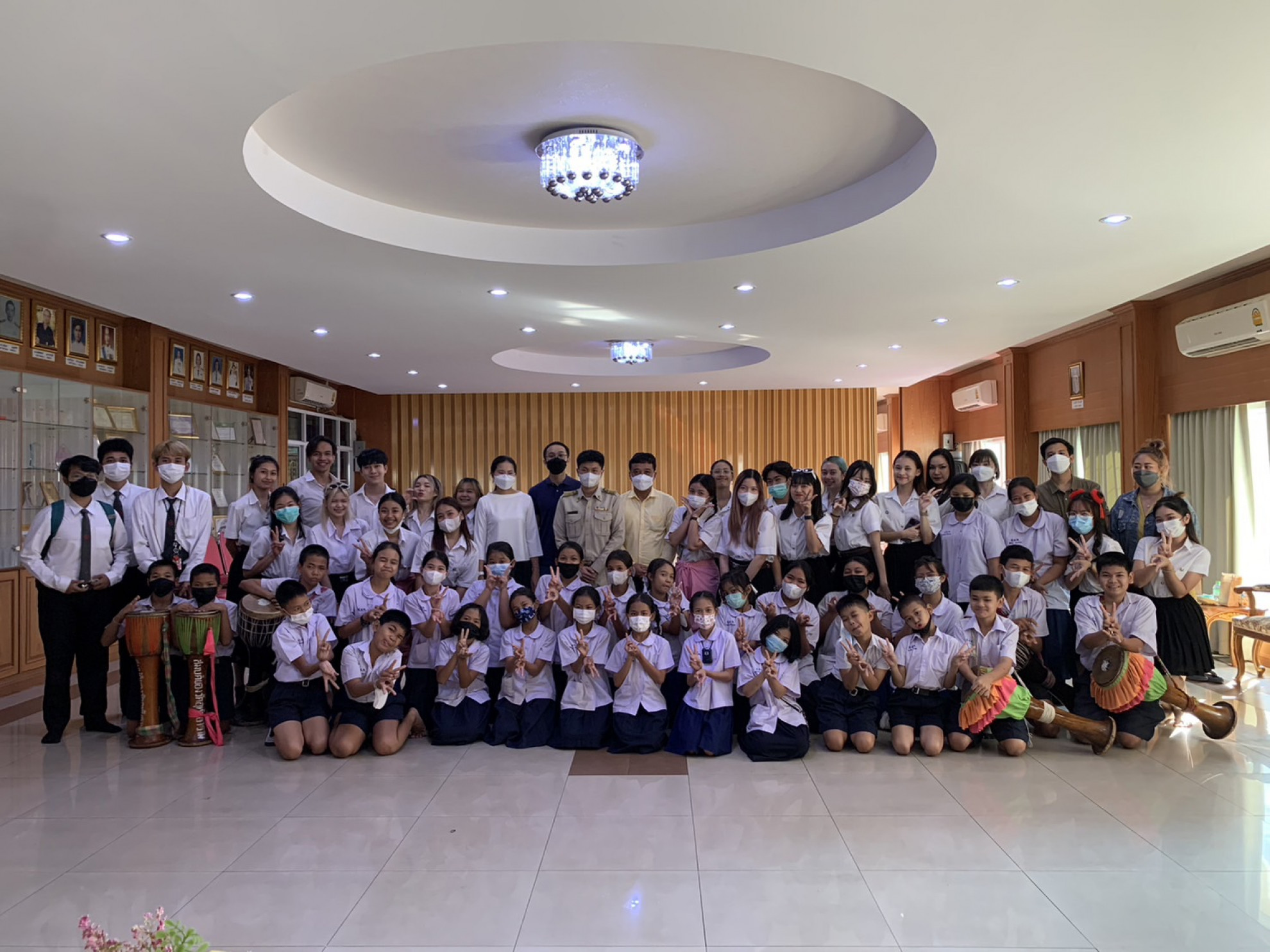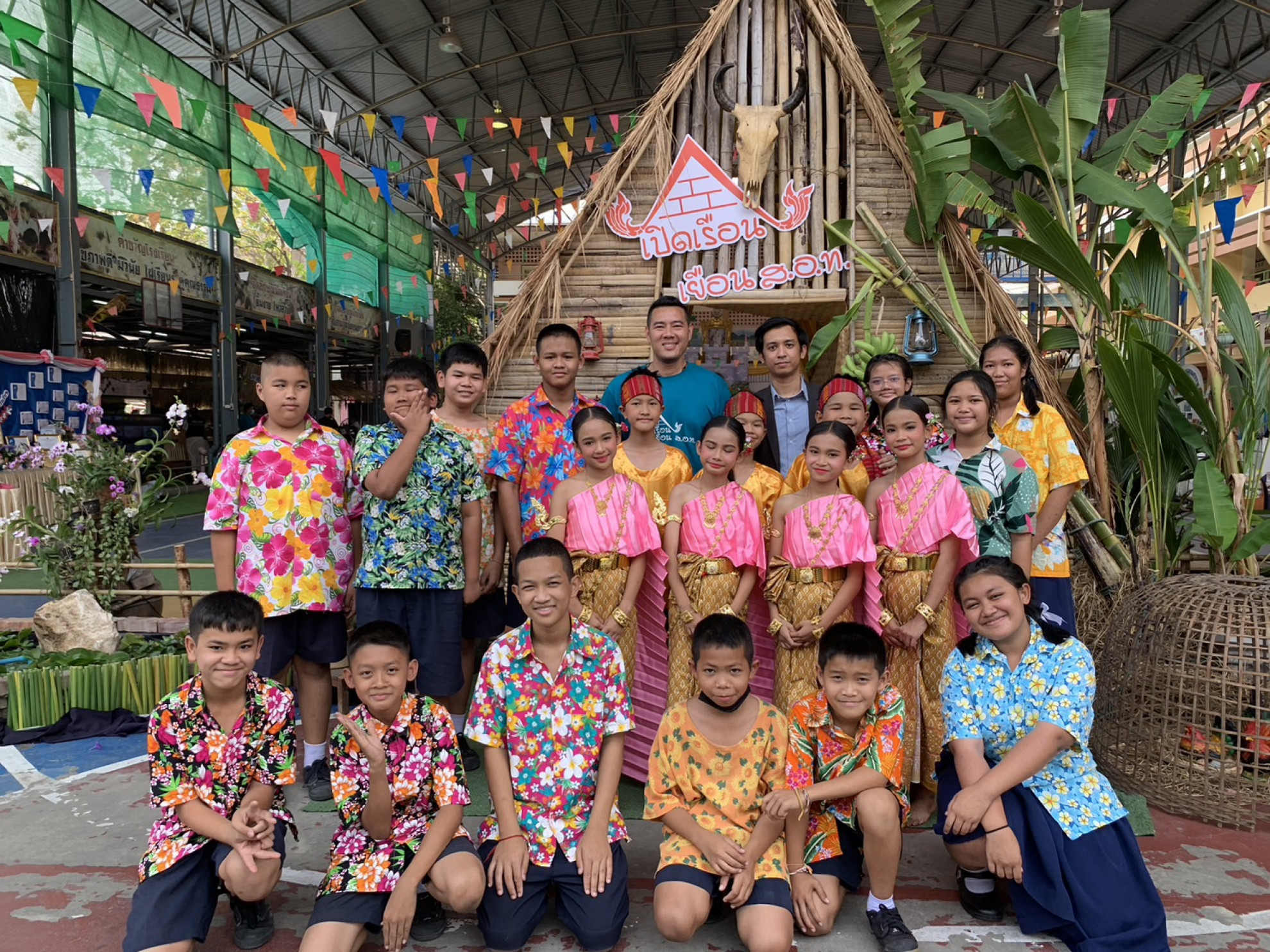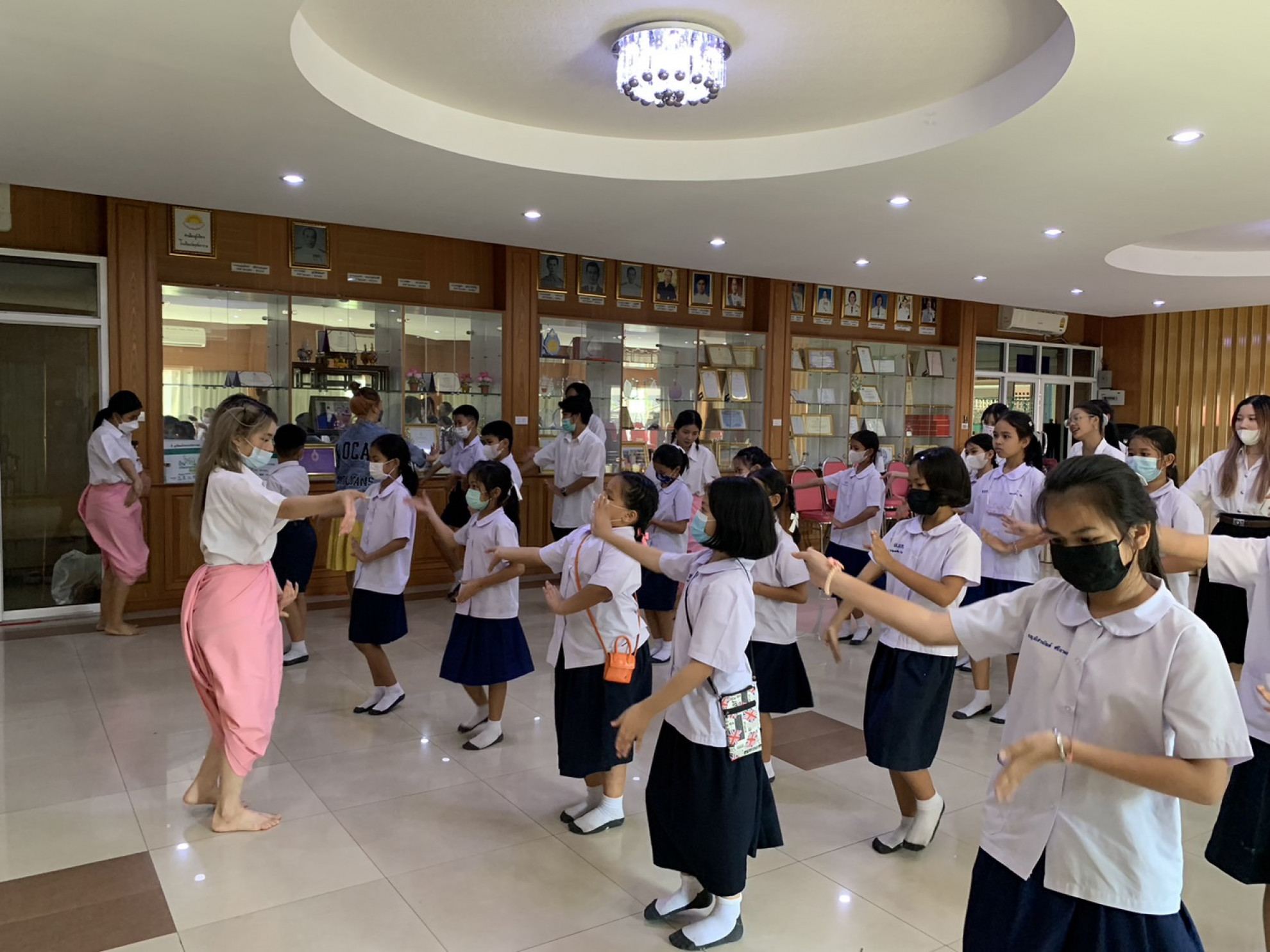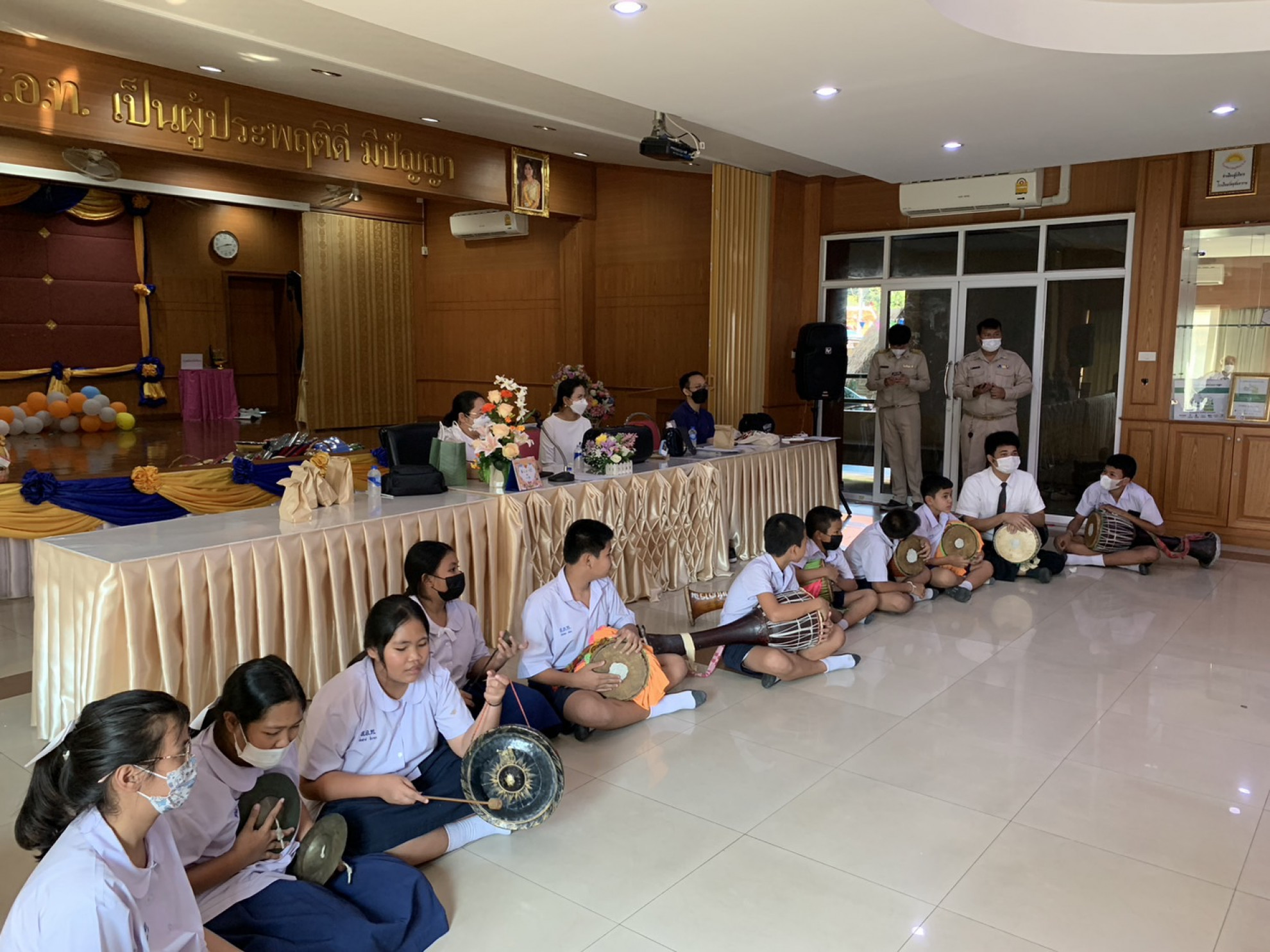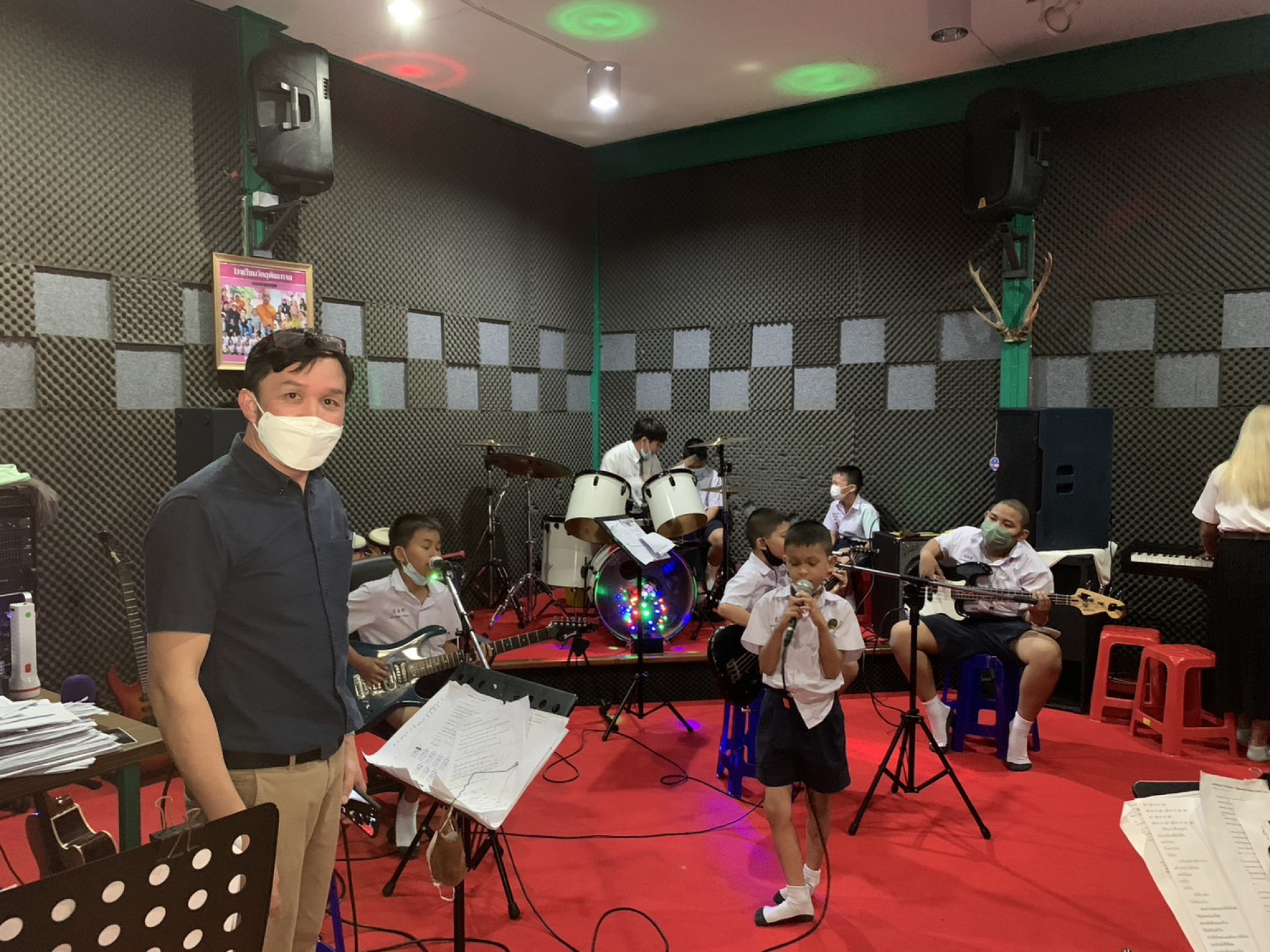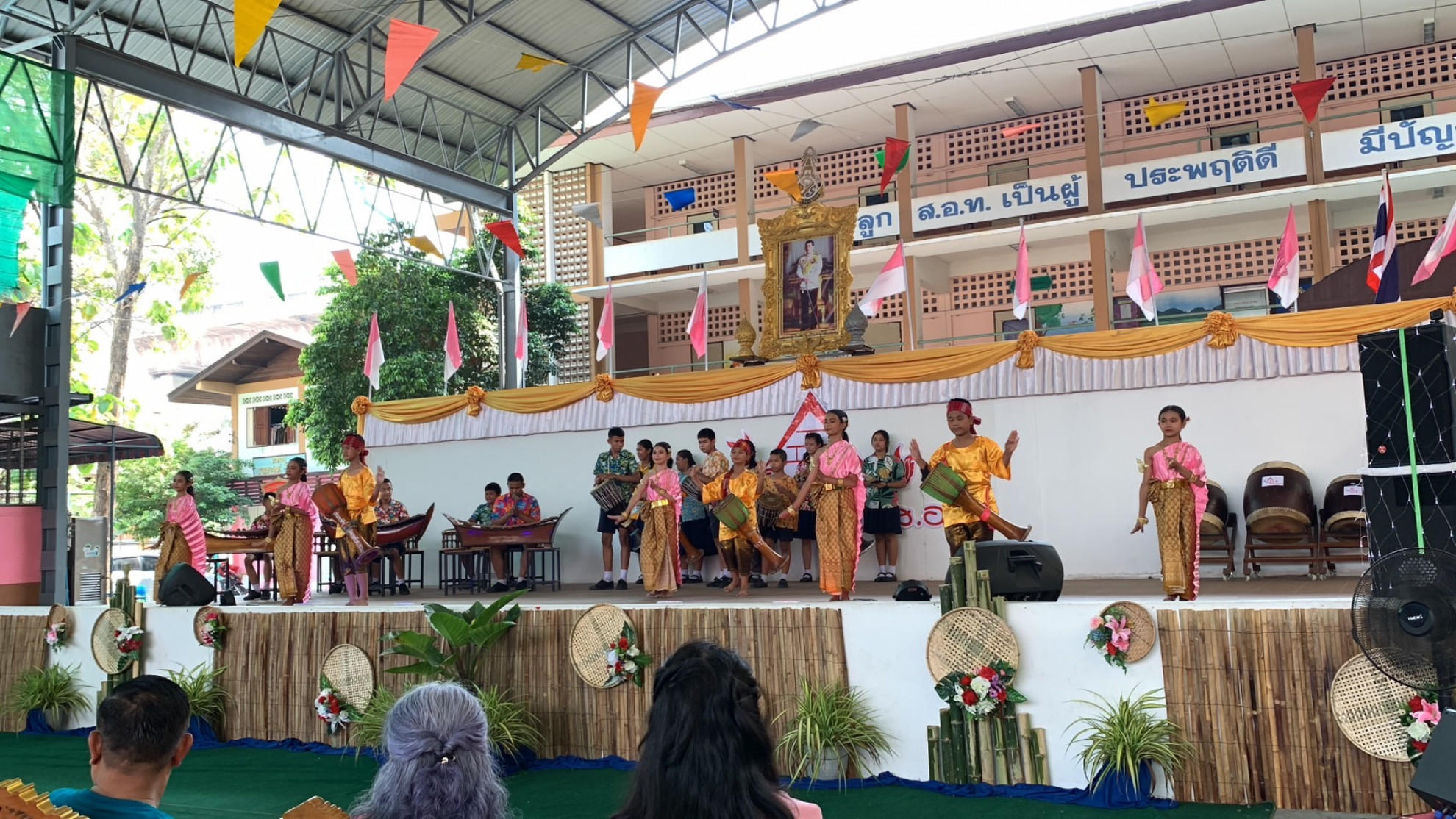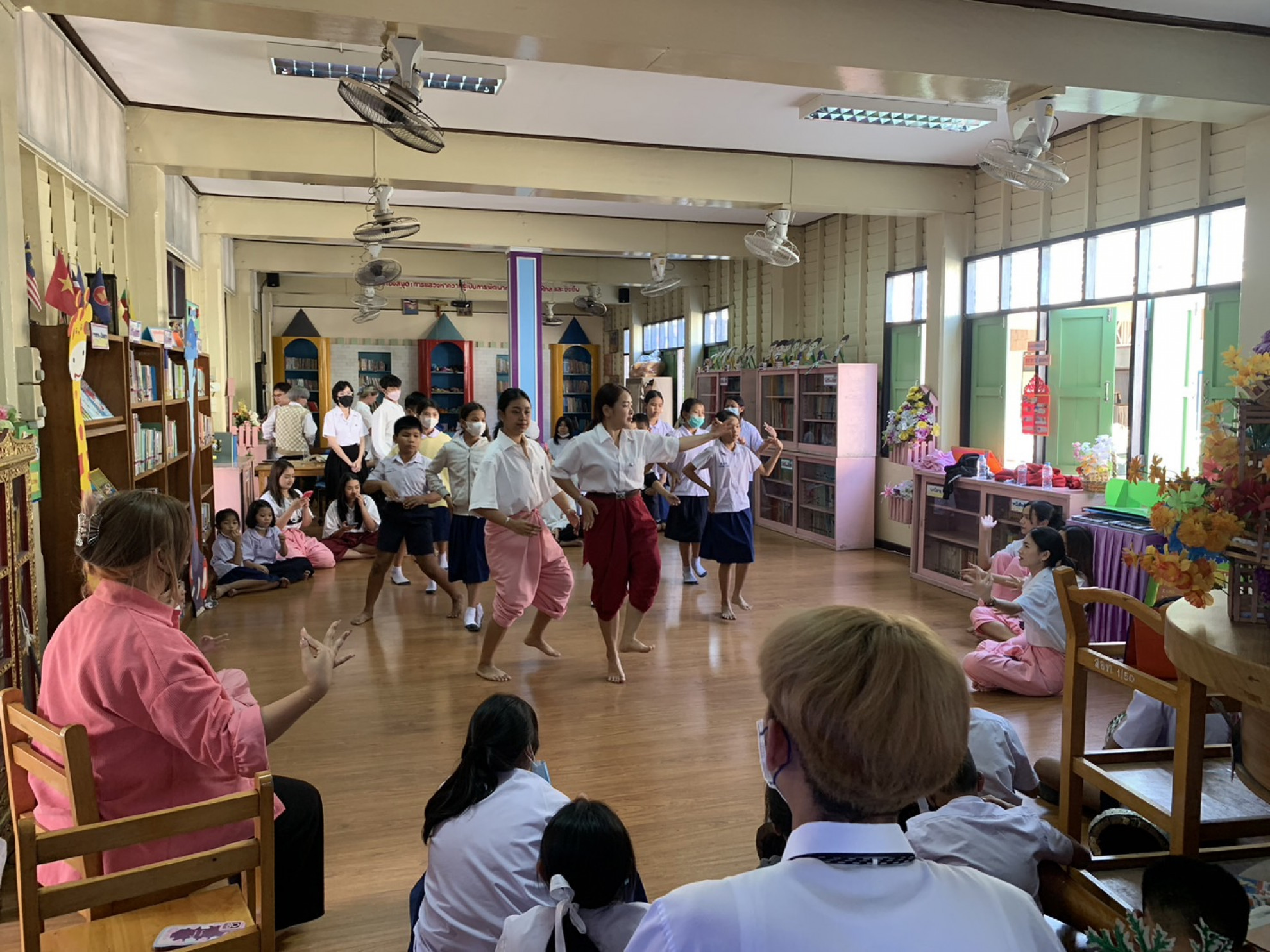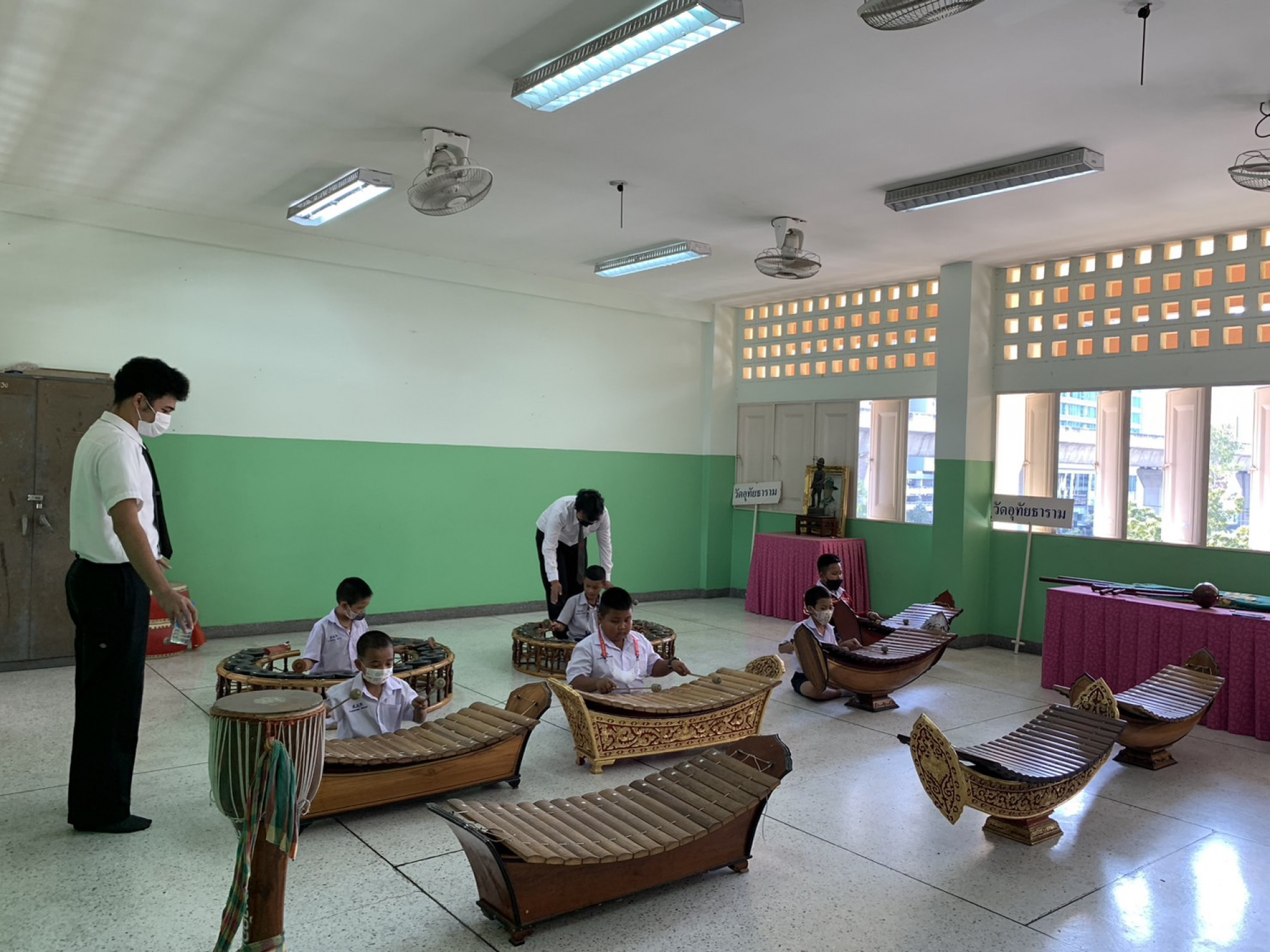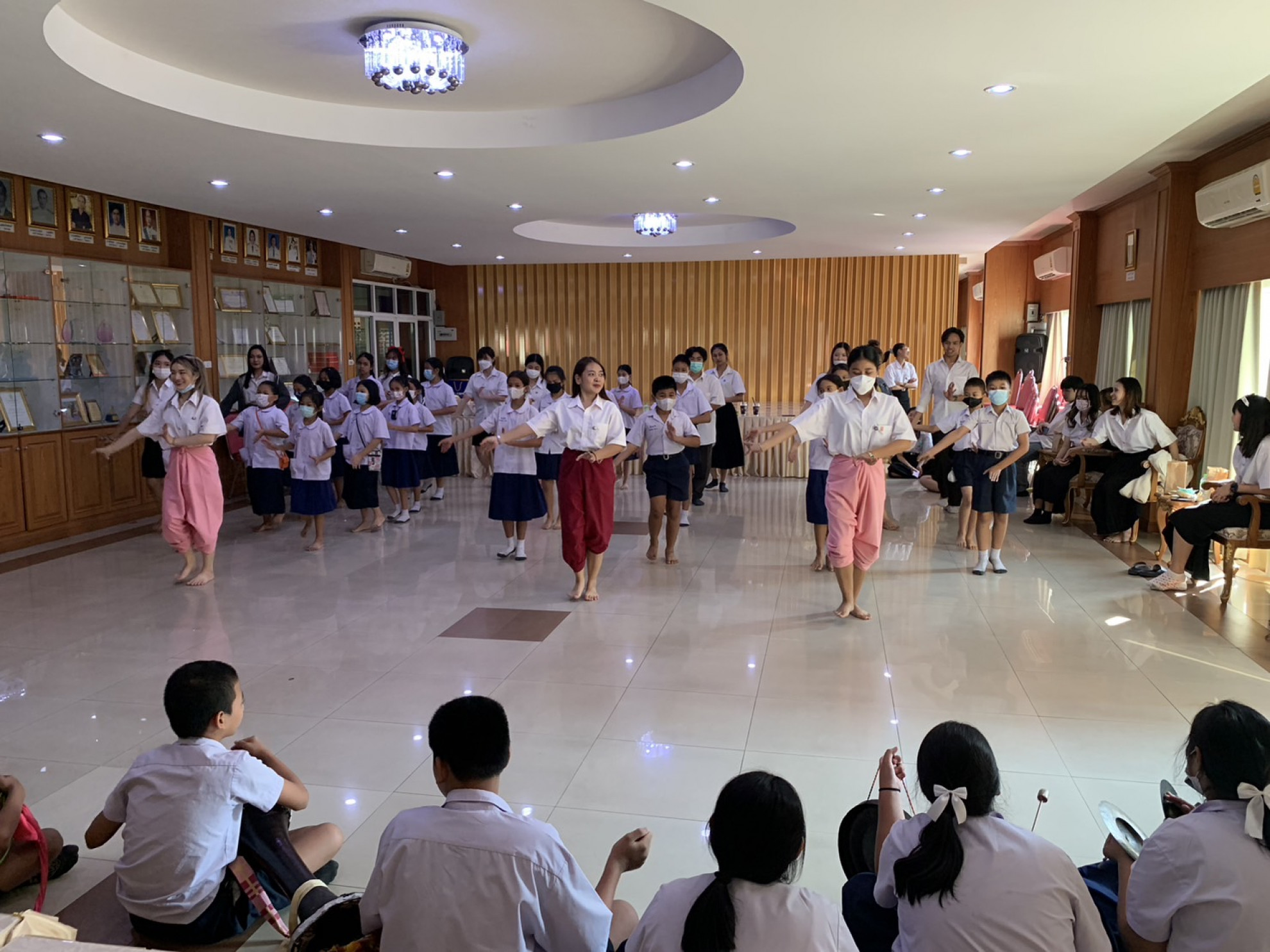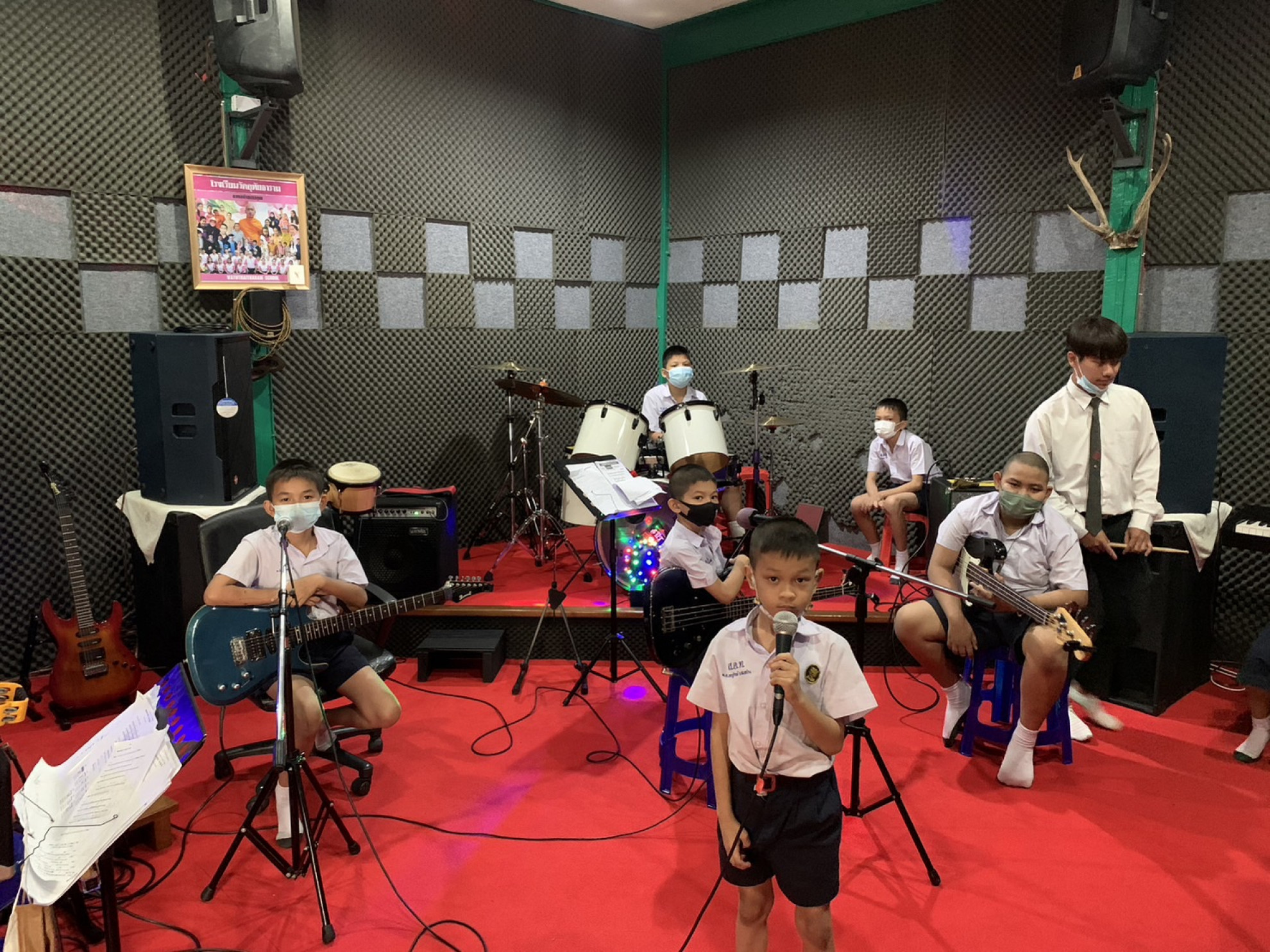





| Target | Indicator | Result |
|---|---|---|

SDG 4
QUALITY EDUCATION
|
||
| 4.3 By 2030, ensure equal access for all women and men to affordable and quality technical, vocational and tertiary education, including university | 4.3.1 Participation rate of youth and adults in formal and non-formal education and training in the previous 12 months, by sex | The "Academic Services to Society Project (Saen Saeb Model)" which organizes activities to develop music and performing arts skills for students at Wat Uthai Tharam School is part of the effort to promote education and training in informal formats. This initiative helps increase youth participation in learning new skills, particularly in cultural arts such as music and dance. The workshops organized attract participants from all age groups, including both youth and adults interested in developing their skills in the arts and performance. The high participation rates reflect the significance of this project in creating educational opportunities for both male and female members of the community, while also stimulating long-term learning benefits. |
| 4.7 By 2030, ensure that all learners acquire the knowledge and skills needed to promote sustainable development, including, among others, through education for sustainable development and sustainable lifestyles, human rights, gender equality, promotion of a culture of peace and non-violence, global citizenship and appreciation of cultural diversity and of culture's contribution to sustainable development | 4.7.1 Extent to which (i) global citizenship education and (ii) education for sustainable development, including gender equality and human rights, are mainstreamed at all levels in (a) national education policies; (b) curricula; (c) teacher education; and (d) student assessment |
The "Academic Services to Society Project (Saen Saeb Model)" that develops music and performing arts skills for students at Wat Uthai Tharam School is closely linked to the broader scope of (i) Global Citizenship Education and (ii) Education for Sustainable Development, while also promoting gender equality and human rights. The project aligns with these educational frameworks in the following ways: Global Citizenship Education (GCE): The program helps students develop a sense of cultural identity and global citizenship through exposure to music and performing arts. By learning about their cultural heritage and engaging with diverse forms of expression, students are better equipped to understand and appreciate global interconnectedness, respect for different cultures, and shared values such as peace, social justice, and equality. Education for Sustainable Development (ESD): The skills taught in the project—such as traditional music and dance—promote sustainability by preserving cultural heritage and fostering creativity, which is key to sustainable social and economic development. Students are encouraged to think critically about their role in society and how they can contribute to building a more sustainable future through the arts. Gender Equality and Human Rights: The project promotes inclusivity and equal opportunities for both male and female students, ensuring that all have access to the same educational resources and opportunities. By offering the same level of participation and respect for all students, regardless of gender, the project reinforces the importance of gender equality and human rights in educational settings. In terms of integration across different educational levels: (a) National Education Policy: The project contributes to the national education policy by fostering a more inclusive and diverse educational experience that embraces both formal and informal learning opportunities. It supports policies that emphasize cultural education and the development of well-rounded individuals. (b) Curriculum: The curriculum can be enriched by integrating the arts and cultural learning into broader educational goals, fostering not only academic knowledge but also creativity, critical thinking, and social skills that align with the global and sustainable development agenda. (c) Teacher Education: The training of educators can incorporate methodologies that emphasize the importance of cultural arts as a means of fostering global citizenship, gender equality, and sustainable development. Teachers are equipped to integrate these values into their teaching practices. (d) Student Assessment: Assessment frameworks can include evaluating students not only on academic achievements but also on their ability to contribute to community development, their understanding of cultural heritage, and their promotion of social justice, gender equality, and sustainability. |

SDG 11
SUSTAINABLE CITIES AND COMMUNITIES
|
||
| 11.4 Strengthen efforts to protect and safeguard the world's cultural and natural heritage | 11.4.1 Total expenditure (public and private) per capita spent on the preservation, protection and conservation of all cultural and natural heritage, by type of heritage (cultural, natural, mixed and World Heritage Centre designation), level of government (national, regional and local/municipal), type of expenditure (operating expenditure/investment) and type of private funding (donations in kind, private non-profit sector and sponsorship) | The "Academic Services to Society Project (Saen Saeb Model)" focusing on developing music and performing arts skills at Wat Uthai Tharam School is indirectly related to the total expenditure per capita spent on the preservation, protection, and conservation of cultural heritage. By promoting traditional music (such as the long drum ensemble) and dance, the project contributes to the preservation of cultural heritage at a local level, particularly through the education of youth. While the project itself may not involve direct financial expenditure on heritage conservation, it supports long-term sustainability by fostering an appreciation for cultural practices. This aligns with broader public and private investment in cultural heritage conservation, as it highlights the importance of protecting intangible cultural heritage, such as performing arts, which is often less funded compared to tangible heritage. The project also ties into the concept of local government expenditure (regional and local) that may allocate resources to support the preservation of local cultural practices, even if it's not explicitly categorized as operating expenditure or investment in a formal budget. Private sector funding, such as donations and sponsorships, can also play a role in supporting such cultural initiatives, ensuring the continuation of these practices for future generations. |
Academic Service Project for Society (Saen Saeb Model): Development of Music and Performing Arts Skills for Students at Wat Uthai Tharam School
Project Objectives
To enhance the potential of students at Wat Uthai Tharam School in the areas of music and performing arts.
To provide academic services to society in strategic areas as part of the Faculty of Fine and Applied Arts' "Saen Saeb Model."
Project Description
The Academic Service Project for Society (Saen Saeb Model) aimed at developing music and performing arts skills for students at Wat Uthai Tharam School through a series of practical workshops. These activities were organized in the following areas:
Development of long drum performance skills,Development of string ensemble skills, and Development of traditional dance and performing arts skills.
The workshops were conducted at Wat Uthai Tharam School to ensure that students would acquire practical knowledge and skills in these areas, contributing to their overall growth and development.
The project resulted in the enhancement of students' knowledge and skills in music and performing arts for 50 students at Wat Uthai Tharam School. The activities were conducted every Monday over four sessions. Participants expressed high levels of satisfaction with the academic service provided in the strategic area of the "Saen Saeb Model."
Faculty members and students contributed their knowledge and skills to improve the capabilities of participants, fostering positive development. The project also allowed faculty and students to apply the outcomes of this academic service to further develop knowledge and address challenges that could lead to innovation, aligned with the strategic goals and policies of the university. This initiative can potentially be expanded into further research and development efforts aimed at improving education and the creation of new approaches that benefit society.
